What Is A Hole Out In Golf?
A definition of the golfing term Hole Out – What does it mean and why do all golfers want to see it happen?


A hole out is basically any golfing shot that finishes with the ball ending up in the cup, (or resting against the flag with any part of the ball below the surface of the putting green.) It’s the last shot that a golfer plays on any given hole. More often than not, a golfer holes out by tapping in a short putt but just occasionally they might achieve a hole out from longer range – A long putt, a pitch or chip, a full shot, maybe even a drive.
If a player has a hole out from the tee on a par-3 that would be a hole-in-one or an ace. It would also be an eagle. If they managed to hole out from the tee on a par-4, that would be a hole-in-one, an ace and an albatross (or double eagle).
A player could hole out from any position, with any club and for any score. It simply means that the shot, whatever its type, has caused the ball to find the hole.
What Is The Penalty For Not Holing Out In Golf?
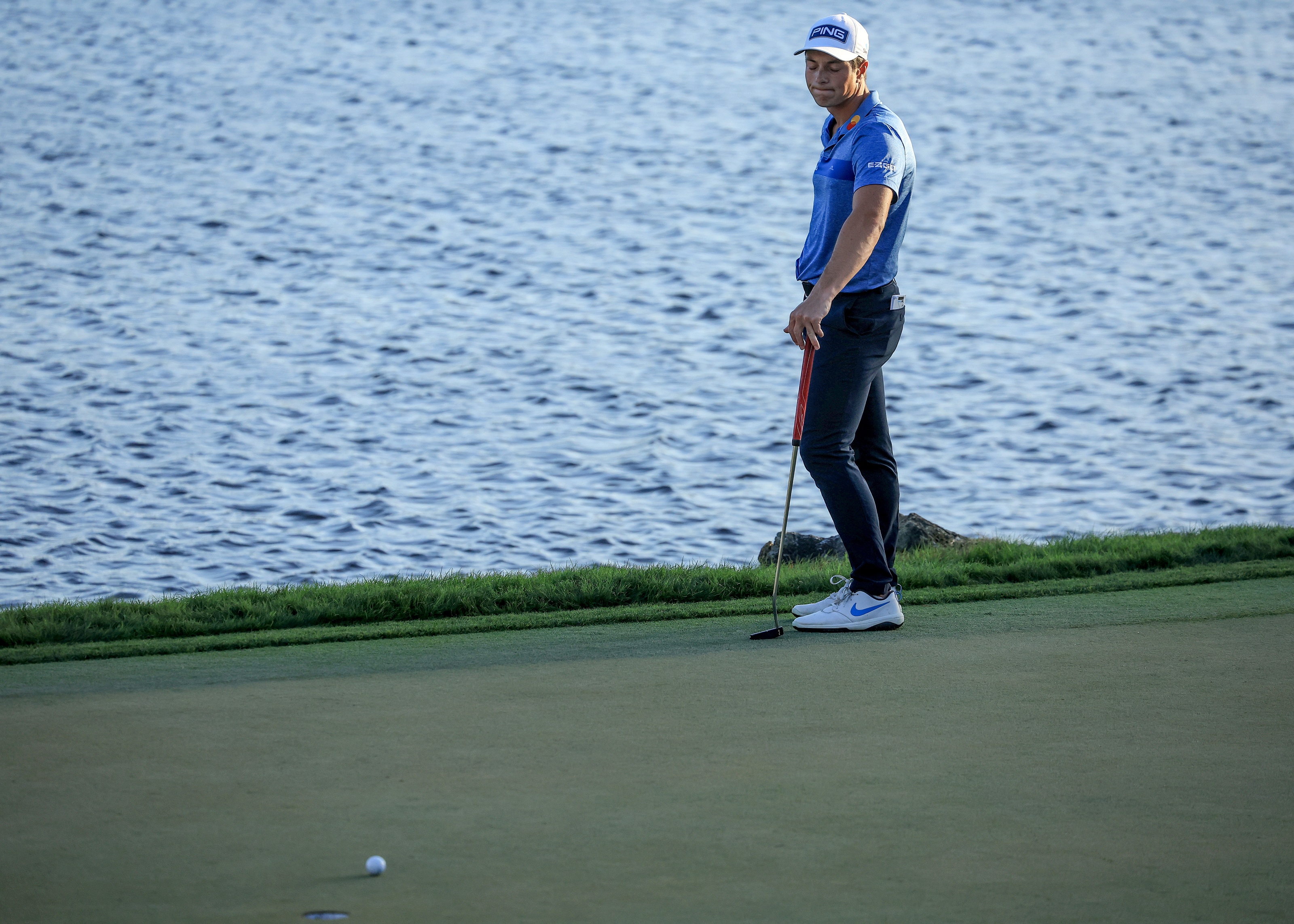
In competition Individual Strokeplay, as we generally see on the main professional tours, not holing out would mean an NR or No Return. To complete a full round of competition Individual Strokeplay, you must hole out on each hole.
In other formats of golf, like Stableford for instance, not holing out would just mean no score is recorded on that hole. There’s no penalty.
For handicapping purposes, it’s not necessary to hole out on each hole. A nett double bogey will effectively be given for the hole you haven’t completed.
Do You Have To Hole Out In Golf?
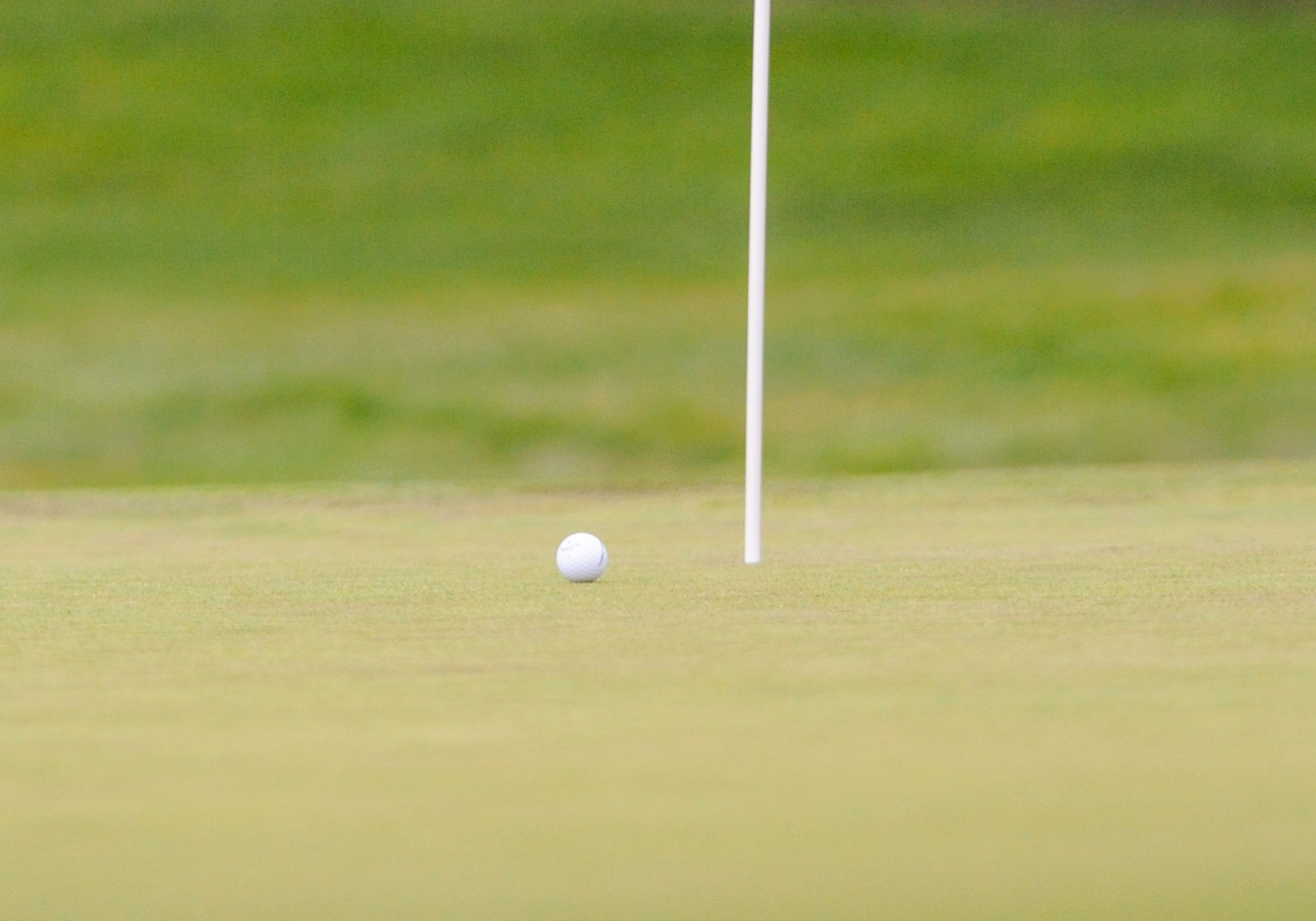
Do you have to hole out?
You have to hole out on each hole to complete a round of competition Individual Stroke Play or your score for the round will go down as NR – No Return.
Get the Golf Monthly Newsletter
Subscribe to the Golf Monthly newsletter to stay up to date with all the latest tour news, equipment news, reviews, head-to-heads and buyer’s guides from our team of experienced experts.
For handicapping purposes, in other formats of golf or in Match Play, you don’t necessarily need to hole out. In Match Play, you may not need to hole out as your opponent may concede the hole.
What Happens When You Concede A Hole In Golf?
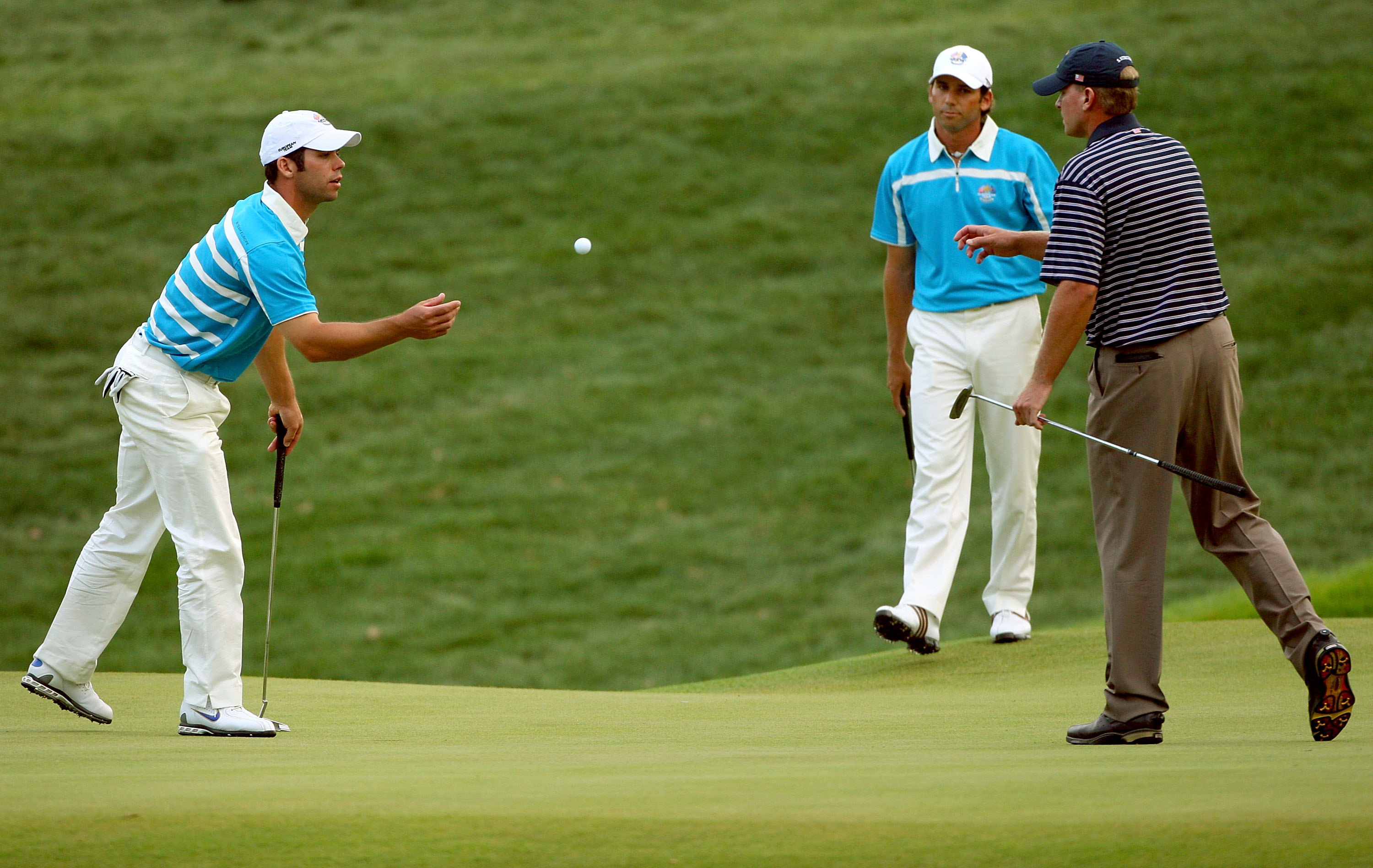
Casey concedes a putt to Steve Stricker
If a player or team feel they have no chance of winning a hole in Match Play golf, they may concede that hole to their opponents. They may simply say – ‘You have us beaten on this hole, pick up and let’s go to the next hole.’
What Happens If A Golf Ball Goes In The Hole And Comes Out?
If a ball goes into a hole and comes out again, it’s bad luck. The individual or team would have to play on until either, the ball is holed out, they give up or they concede, or are conceded the hole.

Fergus is Golf Monthly's resident expert on the history of the game and has written extensively on that subject. He has also worked with Golf Monthly to produce a podcast series. Called 18 Majors: The Golf History Show it offers new and in-depth perspectives on some of the most important moments in golf's long history. You can find all the details about it here.
He is a golf obsessive and 1-handicapper. Growing up in the North East of Scotland, golf runs through his veins and his passion for the sport was bolstered during his time at St Andrews university studying history. He went on to earn a post graduate diploma from the London School of Journalism. Fergus has worked for Golf Monthly since 2004 and has written two books on the game; "Great Golf Debates" together with Jezz Ellwood of Golf Monthly and the history section of "The Ultimate Golf Book" together with Neil Tappin , also of Golf Monthly.
Fergus once shanked a ball from just over Granny Clark's Wynd on the 18th of the Old Course that struck the St Andrews Golf Club and rebounded into the Valley of Sin, from where he saved par. Who says there's no golfing god?
-
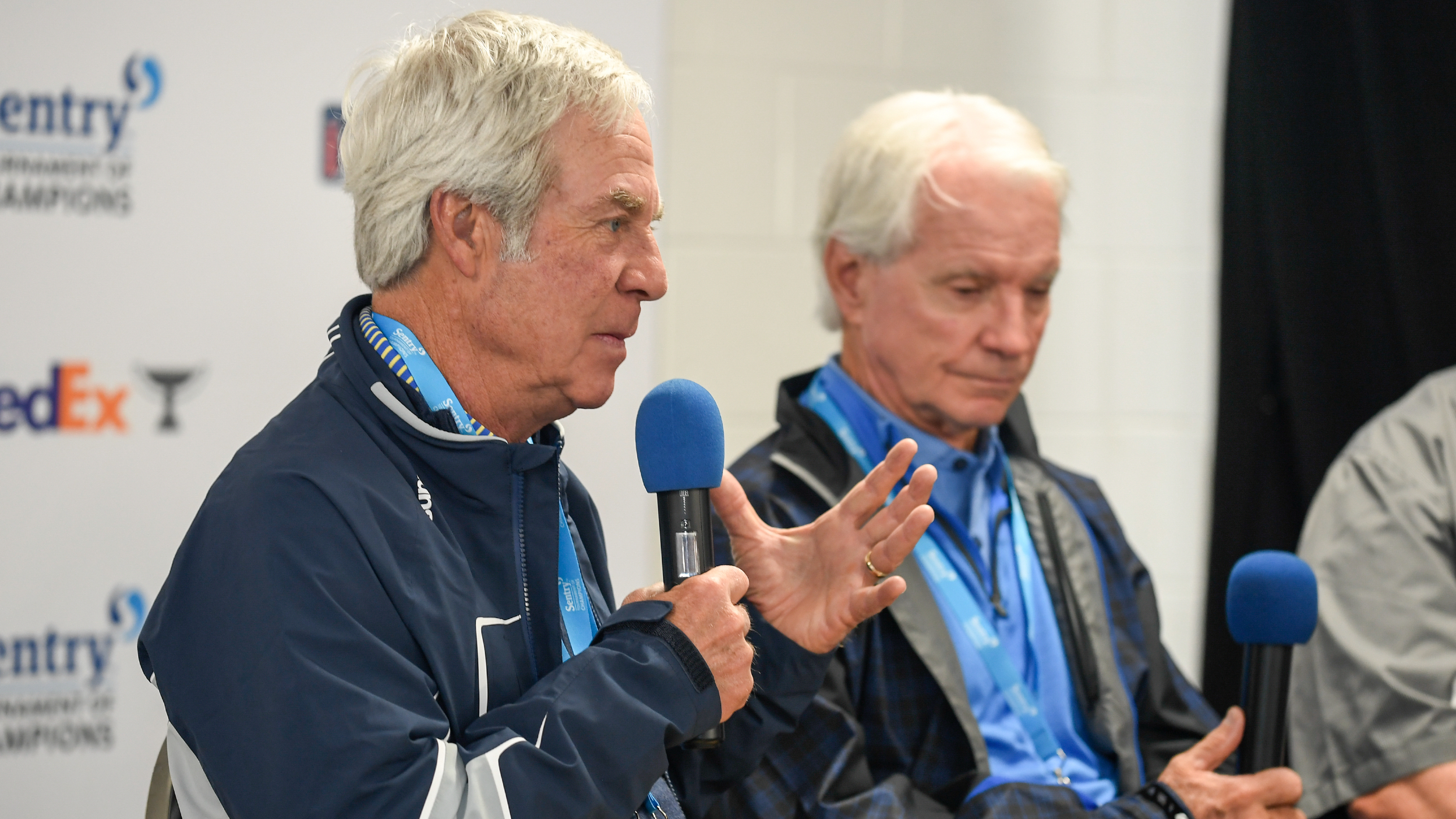 Bill Coore And Ben Crenshaw To Design New Course At Pinehurst Resort
Bill Coore And Ben Crenshaw To Design New Course At Pinehurst ResortBill Coore and Ben Crenshaw are designing a new course for Pinehurst Resort
By Mike Hall
-
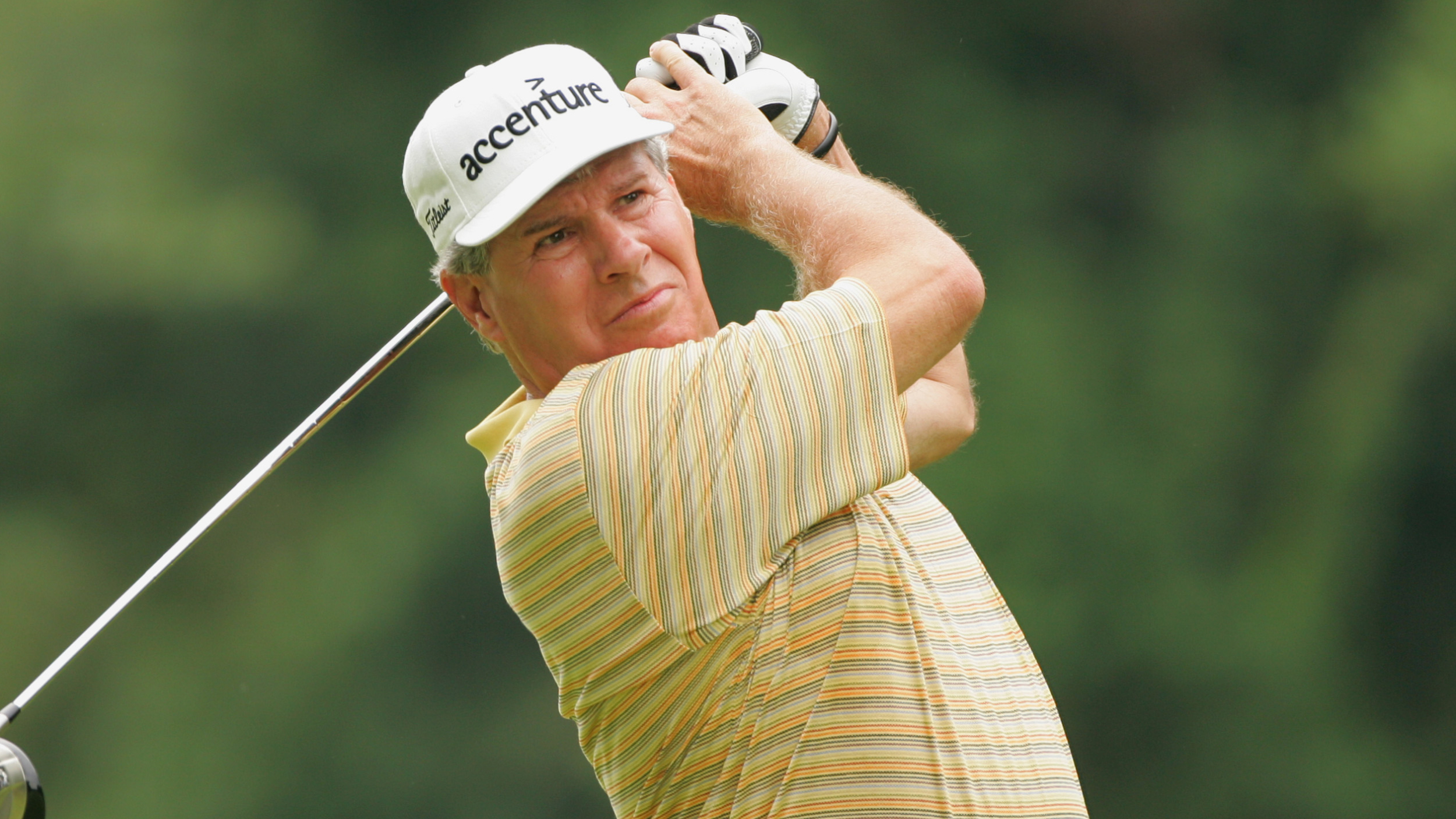 Amateur Legend Jay Sigel Dies Aged 81
Amateur Legend Jay Sigel Dies Aged 81The USGA has announced the American has passed away at the age of 81 from pancreatic cancer
By Mike Hall